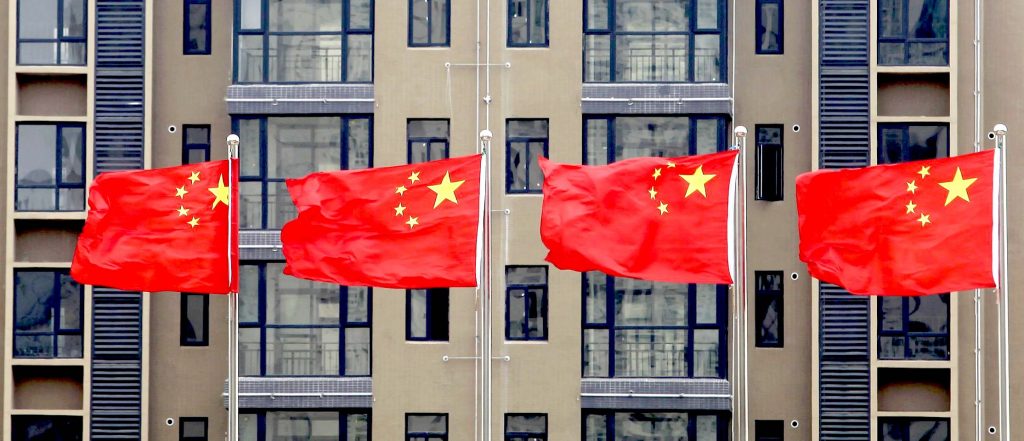On March 9, 2000, President Bill Clinton urged China’s entry into the World Trade Organization (WTO) with the following words.
Op-ed originally appears on LifeZette March 24, 2018
“For the first time, our companies will be able to sell and distribute products in China made by workers here in America without being forced to relocate manufacturing to China, sell through the Chinese government, or transfer valuable technology … We’ll be able to export products without exporting jobs.”
Eighteen years later, we know he was wrong.
Presidents George W. Bush and Barack Obama engaged in years of economic dialogue with China to resolve issues of trade cheating, government subsidies, and currency manipulation. Multilateral negotiations were undertaken to reduce overcapacity in steel. None of it worked.
Chinese firms have repeatedly hacked America’s leading companies and stolen proprietary technology to build their economy. U.S. firms are not allowed to sell in China unless they manufacture there. American companies are also required to transfer key technology at coercively low prices — all in exchange for short-term market access. Then, local competitors drive American companies out of the market.
According to indictments and other court documents, Chinese companies have stolen proprietary U.S. technology for products including nuclear power generators, solar cells, internet software, and internet hardware. It’s estimated that 20 percent of the wind turbines in China today rely on technology stolen from a U.S. company.
Rather than trade fairly with U.S. suppliers, China has favored its own companies, racking up a $375 billion trade surplus with the United States and setting a new world record bilateral trade imbalance. This is economic aggression.
Trump rightly named China a “strategic competitor” in his National Security Strategy. The U.S. Trade Representative stated that China’s entry into the WTO was a mistake. The administration’s National Defense Strategy called out Beijing’s use of predatory economics to coerce neighboring nations.
Trump attempted bilateral economic talks with China through the Mar-a-Lago process. But President Xi and his representatives merely recycled offers they had already pledged to the Obama administration but did not fulfill.
Beijing has committed the largest theft in world history through its systematic technology transfer strategy. In fact, over $350 billion is lost each year due to forced technology transfer. Beijing’s “China 2025” plan mandates that government-owned companies upgrade in 10 priority sectors deemed industries of the future. A substantial portion of the technology underpinning this plan was forcibly taken from U.S. firms. No foreign competitors are allowed.
China has also shamelessly hacked key American technologies. U.S. Steel, for example, was forced to engage in costly litigation after Chinese firms stole high-tech steelmaking processes. American Superconductor Corp. was the victim of theft by Sinovel, which used tactics worthy of a spy novel.
In one case involving Westinghouse, Alcoa, and SolarWorld, Chinese agents infiltrated the companies using such code names as “UglyGorilla” and “KandyGoo.”
Significantly, the United States still maintains the world’s wealthiest consumer market. And this gives the president leverage needed to take action in three key areas.
First, Trump must levy tariffs on products that benefit from China’s industrial policy. Those who claim “protectionism” forget that tariffs are a longstanding method to enforce global trade rules against subsidies and dumping.
Second, Beijing has perfected the art of “weaponized investment.” Awash in surplus trade dollars, China’s government-supported companies have systematically acquired U.S. firms and technology, including high-tech producers of semiconductors and other advanced systems. The U.S. must limit China’s purchase of critical American technologies that currently provide a strategic advantage.
Third, the U.S. is right to use the WTO to stop Beijing’s imposition of coercive licensing requirements on US companies. Many firms are required to sign licensing agreements with Chinese companies at low prices as a condition of selling there. But this is a devil’s bargain since it merely yields short-term market access while surrendering long-term technological viability.
Trump’s action on tariffs, investment, and WTO cases is the first step. China is likely to respond. But we have the advantage because America’s consumer market is the fuel for China’s growth.
The president must evolve his response to limit undue retaliatory harm. Resolve, not hand-wringing, is in order over a period of years.
A comprehensive tariff strategy must be combined with both a new-Hamiltonian industrial strategy and a policy to manage the dollar’s exchange rate, making American goods more competitive both at home and overseas. Farmers and ranchers must be protected when they face commodity prices that do not pay their bills.
The president is right to act now against predatory economic strategies if we are to preserve an economy for our children.
Daniel DiMicco is chairman of the Coalition for a Prosperous America; Michael Stumo is CEO of the Coalition for a Prosperous America.













